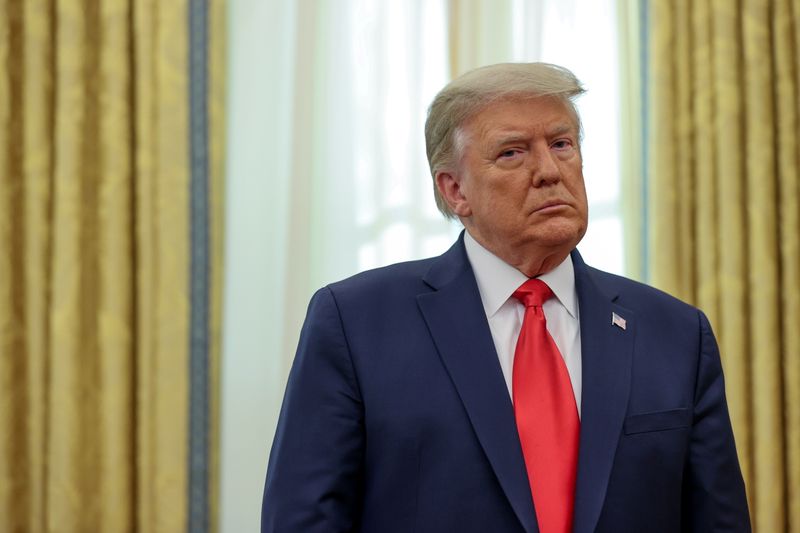By Patricia Zengerle
WASHINGTON (Reuters) - U.S. lawmakers unveiled the final version of a massive annual defense policy bill on Thursday that defies President Donald Trump's plans to withdraw troops from Germany and keep the names of Confederate generals on military bases, setting the stage for a veto fight in the last weeks before he leaves office.
The $740 billion, 4500-page National Defense Authorization Act, or NDAA, is the result of months of negotiations between Republicans and Democrats in the Senate and House of Representatives. Passed every year since 1961, it addresses everything from pay increases for U.S. troops to how many ships or aircraft can be purchased to how to address China and Russia.
Among other things, the bill expresses support for the continued presence of U.S. forces in Germany and limits the ability of the Department of Defense to reduce the number of active-duty service members there below 34,500 without an assessment of its impact.
This defies the Pentagon's announcement in July that it would withdraw about 12,000 of the 36,00 troops from Germany, a fallout from Trump's long-simmering feud with Berlin over military spending.
If the bill is approved by Trump before the Jan. 15 deadline to withdraw troops, it also would appear to freeze his plan to slash troop levels in Afghanistan to 2,500 from 4,500. Trump's withdrawal could then only go ahead after a risk assessment, a lengthy, labor-intensive process.
Committee aides said they expected the House would pass the bill early next week, sending it to the Senate. After that, it would go to the White House, for Trump to sign or veto.
VETO THREATS
Trump has vowed to veto because of a provision to strip the names of Confederate military leaders from U.S. bases, which was passed by both the Republican-led Senate and Democratic-led House with bipartisan support.
He also has insisted he will veto if the NDAA does not include a provision repealing legal protections - known as Section 230 - for social media companies such as Facebook (NASDAQ:FB) and Twitter, which he has accused of stifling conservative voices during his unsuccessful 2020 re-election campaign.
The final NDAA did not include such a provision. Members of Congress said it has nothing to do with the military and should not be used to stop an important defense bill.
Committee staff said it will be difficult to override a veto with Congress in session only until year-end. If Trump garners enough support in Congress to carry out his threat, it would end the streak of passing the NDAA after 59 consecutive years.
The bill imposes mandatory sanctions on Turkey for its acquisition of the Russian S-400 air missile defense system.
The bill also includes a provision that would require any armed forces to identify themselves and their agencies. It was introduced by Democrats after some troops deployed by the Trump administration during racial justice protests last summer refused to say who they were or where they had come from.
As Reuters reported Wednesday, the fiscal 2021 NDAA authorizes the Pentagon to spend $10 billion on buying 93 Lockheed Martin (NYSE:LMT) F-35 fighter jets. And it throws up a roadblock for Ligado Networks low-power nationwide mobile broadband network.
